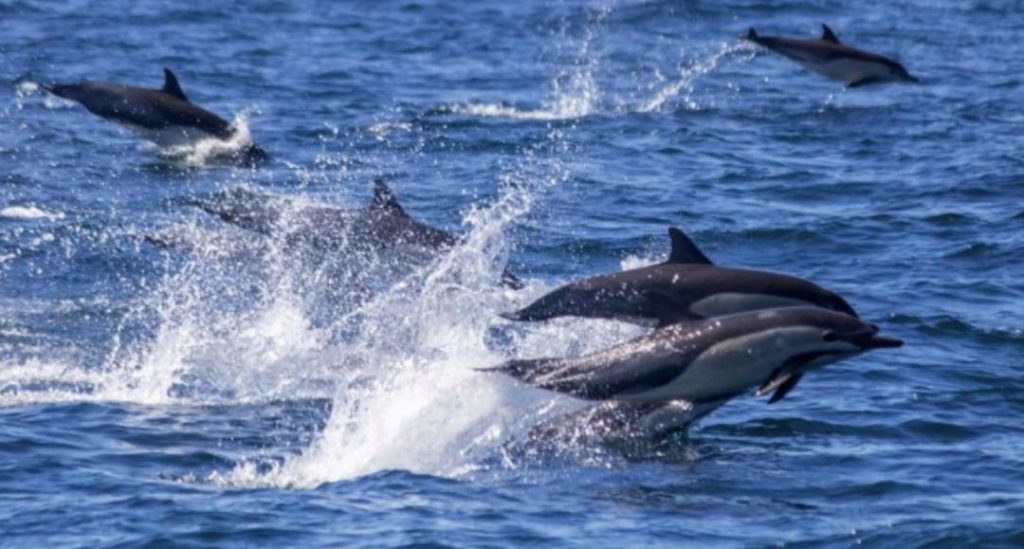
Dolphins & Whales Regularly Socialise with Each Other: Study
In a fascinating discovery, researchers from Griffith University have found that dolphins and whales engage in playful and mutual social interactions. The study, which analyzed videos and photographs of interactions between baleen whales and dolphins, revealed that these marine mammals frequently socialise with each other.
The researchers, led by Dr. Rodrigo Costa, studied 199 separate events involving 19 different species of dolphins and whales. The findings were published in the journal Marine Mammal Science, and the results are nothing short of astonishing.
According to the study, the most common interaction between dolphins and whales is dolphins swimming near the whale’s head. This behavior is not only a sign of social bonding but also a display of playfulness. In many cases, the dolphins will swim alongside the whale, seemingly enjoying the company of their massive counterparts.
The study also found that the interactions between dolphins and whales are often mutual, with both parties participating in the play. This suggests that these marine mammals have a deep understanding of each other’s behavior and are able to communicate effectively.
One of the most interesting findings of the study is the involvement of bottlenose dolphins. These dolphins were found to be the most involved species in interactions with whales, often playing and frolicking with the larger animals.
So, why do dolphins and whales engage in these playful interactions? According to Dr. Costa, the study suggests that these social interactions may be an important aspect of the marine ecosystem.
“Dolphins and whales are both apex predators, and their social interactions may play a crucial role in maintaining the balance of the ecosystem,” said Dr. Costa. “By studying these interactions, we can gain a better understanding of the complex relationships between these marine mammals and their environment.”
The study also has implications for our understanding of dolphin and whale intelligence. The ability of these animals to form social bonds and engage in playful interactions suggests that they may be more intelligent than previously thought.
“Dolphins and whales are often considered to be among the most intelligent animals on the planet, and this study provides further evidence of their cognitive abilities,” said Dr. Costa.
The study’s findings have also sparked interest in the conservation of these marine mammals. As our oceans continue to face threats from pollution, climate change, and overfishing, the conservation of dolphin and whale populations is more important than ever.
“By studying the social interactions between dolphins and whales, we can gain a better understanding of the importance of preserving these ecosystems,” said Dr. Costa. “It’s essential that we take action to protect these animals and their habitats, not just for their own sake but for the health of our planet as a whole.”
In conclusion, the study’s findings are a testament to the fascinating social lives of dolphins and whales. By studying these interactions, we can gain a deeper understanding of these incredible animals and the importance of preserving their place in our oceans.






